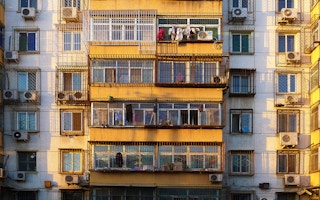China’s cities now have a better idea of what global warming is going to cost. New research warns that for every rise of one degree Celsius in global average temperatures, average electricity demand will rise by 9 per cent.
And that’s the average demand. For the same shift in the thermometer reading, peak electricity demand in the Yangtze Valley delta could go up by 36 per cent.
And the global average rise of 1°C so far during the last century is just a start. By 2099, mean surface temperatures on planet Earth could be somewhere between 2°C and 5° hotter. That means that average household electricity use—assuming today’s consumption patterns don’t change—could rise by between 18 per cent and 55 per cent. And peak demand could rise by at least 72 per cent.
Governments, energy utilities and taxpayers must plan for an uncertain future. The latest study in the needs of the fast-developing economy of China, now one of the world’s great powers, and the biggest emitter of the greenhouse gases that drive global warming, would be necessary even if there were no climate change: that is because even without the factor of climate change driven by profligate combustion of fossil fuels almost everywhere in the world, household electricity consumption in China is expected to double by 2040.
And climate change brings severe additional problems. Chinese scientists already know that climate change within the country is a consequence of human-induced global warming. They know that average warming worldwide means more intense and more frequent extremes of heat and drought. And they have just learned that by the century’s end, levels of heat and humidity could become potentially lethal, particularly so in the north China plains.
Most responsive
So researchers from Fudan University in Shanghai and Duke University in North Carolina report in the Proceedings of the National Academy of Sciences that they built up a picture of how householders respond to weather shifts by examining data from 800,000 residential customers in the Pudong district of Shanghai between 2014 and 2016, and then tested their findings against various projections of global climate change in this century.
Residential power demand makes up only about a quarter of the total for the Shanghai metropolis, but the scientists focused on individual householders because these were most responsive to fluctuations in temperature.
To nobody’s great surprise, home usage of electricity went up during the days of extreme cold, early in February, and the days of extreme heat, usually around the end of July and early August.
Clear link
They found that for every daily degree of temperature rise above 25°C, electricity use shot up by 14.5 per cent. Compared with demand during the household comfort zone of around 20°C, on those days when temperatures reached 32°C, daily electricity consumption rose by 174 per cent.
The implication is that more investment in air conditioning is going to drive even more global warming: other research teams have already identified the potential costs of heat waves and repeatedly warned that demand for air conditioning will warm the world even further. In the US, there are already signs that power grids may not be able to keep up with demand in long spells of extreme heat.
Shanghai is a bustling commercial powerhouse of a city: other parts of China have yet to catch up. The study found that higher-income households reached for the thermostat in cold weather. But in hot weather—and the Yangtze delta region, which is home to one-fifth of the nation’s urban population and produced one-fourth of China’s economic output, can get very hot—all income groups turned on the air conditioning.
“If we consider that more provinces would become ‘Shanghai’ as incomes rise, our results may ultimately be more broadly applicable,” said Yatang Li, a PhD student at Duke University, who led the research.
This story was published with permission from Climate News Network.

















